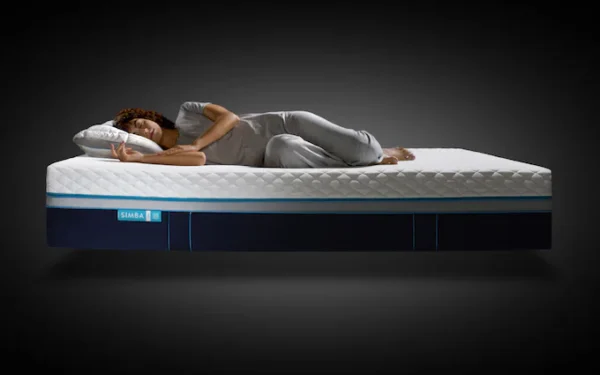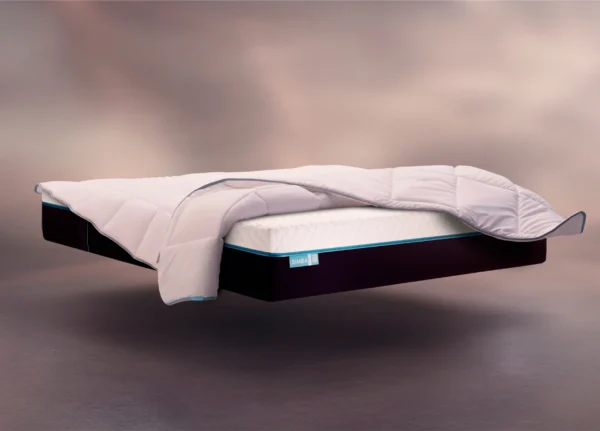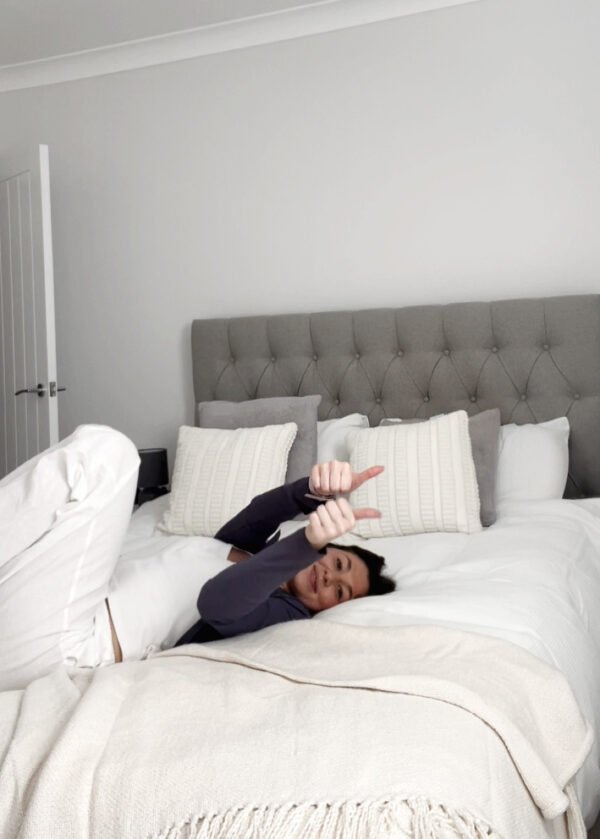
The Best Sleep Postures for Your Health – And How to Get the Most Restorative Sleep
There’s nothing quite like a good night’s sleep, but did you know that the way you sleep can have a huge impact on your health? The position you adopt each night affects your spine, neck, digestion and even your skin. Whether you’re a back sleeper, a side sleeper, or someone who sprawls out like a starfish, your posture plays a crucial role in how well you rest and how you feel in the morning.
So, which sleep position is best for your health? And how can you improve your sleep quality for a truly restorative rest? Let’s take a closer look.

Back Sleeping: The Spine’s Best Friend
Sleeping on your back is often considered the best position for spinal health. This posture keeps your head, neck, and spine aligned, reducing pressure points and preventing unnecessary strain.
However, back sleeping isn’t for everyone – particularly those who snore or suffer from sleep apnea. This position can cause the tongue to fall back into the throat, partially obstructing airflow. If you’re a back sleeper and struggle with snoring, using a supportive pillow to elevate your head slightly can help.
Side Sleeping: The Most Popular Choice
Side sleeping is the most common sleep position, and for good reason. It helps reduce snoring, promotes digestion, and is particularly beneficial for pregnant women. This posture also takes pressure off the spine and may help reduce lower back pain.
However, not all side sleeping positions are created equal. Sleeping in the fetal position, where your knees are tucked close to your chest, can restrict deep breathing and lead to joint stiffness over time. Instead, try keeping your legs slightly extended and placing a pillow between your knees for better spinal alignment.
Stomach Sleeping: The Most Problematic Posture
While some people find stomach sleeping comfortable, it’s generally the least recommended position for spinal health. Sleeping on your stomach forces your neck into an unnatural twist, which can lead to stiffness, soreness, and even long-term misalignment. Additionally, this position places unnecessary pressure on the lower back, potentially causing pain over time.
If you can’t give up stomach sleeping, try placing a thin pillow under your pelvis to reduce strain on your spine and opt for a soft, flat pillow under your head to minimise neck twisting.
How Your Sleep Surface Affects Your Posture

Regardless of your preferred sleep position, the quality of your mattress and bedding plays a huge role in maintaining proper spinal alignment and overall sleep health. A mattress that is too soft can cause your body to sink, misaligning the spine, while one that is too firm may create pressure points that lead to discomfort.
We recently tried out the Simba Sleep Original Hybrid Mattress and the Simba Hybrid Duvet, and the difference was undeniable. The Original Hybrid Mattress combines responsive layers that contour to your body, offering the perfect balance of support and softness. Whether you’re a back, side, or even a stomach sleeper, this mattress adapts to your posture, promoting healthy alignment and reducing pressure points.


The Simba Duvet, designed with temperature – regulating technology, ensures you stay comfortable throughout the night, preventing overheating – one of the biggest sleep disruptors. A perfect purchase as we enter the warmer nights of Spring and Summer.


Tips for Improving Sleep Posture
- Invest in a quality mattress and pillow: Your bedding should support the natural curve of your spine.
- Use pillows strategically: Side sleepers should place a pillow between their knees, back sleepers may benefit from one under their knees, and stomach sleepers should opt for a thin pillow under the hips.
- Keep your posture in check: If you wake up with aches and pains, reassess your sleep position and mattress quality.
- Stretch before bed: Gentle stretching can help alleviate tension and improve sleep posture over time.
Your sleep posture is just as important as the amount of sleep you get. Whether you’re a back, side, or stomach sleeper, small adjustments can make a big difference in how you feel each morning. And when paired with a supportive sleep environment – like the one provided by Simba Sleep (tried and tested!), you can enjoy deeper, healthier and more restorative rest.
Sweet Dreams!















































